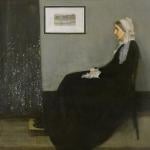Jeff Wilson is for me one of the most interesting of the new generation of scholars, raised Unitarian Universalist, explored various schools of Buddhism before settling into a Shin practice and affiliation he is now finishing his doctorate in Religious Studies with an emphasis on Buddhism in America. As such I find him an intriguing thinker about how liberal religion might actually manifest. In fact Jeff wrote a brief notice to Philocrites about a blog he’s writing where he notes that while it isn’t overtly about Unitarian Universalism, it “betrays pretty obviously that I was raised in a New England Universalist church, at least if you know what to look for (liberal politics, desire for religion to inform society and morality, theological inclusiveness, recognition of interconnectedness, and most importantly an emphasis on universal salvation).” I think he’s put his finger on what the liberal current in religion might be, what liberal religion is.
In particular if one reverses the order one finds what a liberal religion might be, not as some placeholder for one who has rejected one form of “orthodoxy” or another until one finds something better or simply moves on to the New York Times, but as a vibrant and living faith in and of itself. While this particular articulation is about the largest expressly liberal tradition in North America, Unitarian Universalism, it can equally be applied to any tradition, including secularism and humanism. Hence the possibility of liberal Buddhism, liberal Christianity, liberal Judaism, liberal Islam, etc, etc, etc. At least I think so. It is the current that informs religions. I believe this.
So, as a foundation: universal salvation.
What informs that is: a recognition of interconnectedness.
A consequence of this is: theological inclusiveness.
What flowers out of that is a desire for religion to inform society and morality.
And, lastly, if most controversially, it seems in our age at least, to lead to liberal or progressive politics for most who find the preceding statements true.
There is at the bottom of liberal religion a sense we’re all in it together, and while we do appear to be in a real pickle as human beings on this planet, there is at the same time a constantly rebirthing sense of hope. It appears to arise with our breath.
Upon closer examination it seems that this sense of universal possibility, of universal healing (salve: salvation) arises out of our knowing we really are woven out of the same stuff – every blessed one of us. While we’re different in so many ways, and each individual (human, animal, plant, everything) is precious in our possibility, we are also common as dirt, just plain one. Knowing both of these things that are our interdependence is the great wisdom, and a pointer on the path to that wisdom.
And out of this simple realization arises a knowledge that no one has a monopoly on truth. In fact truth is dynamic and one cannot hold it, one can only move within it. And so again, as naturally as breathing one begins to appreciate the wisdom to be found in the world’s religions. Here, in particular, the dangers of this way become apparent. And no authentic path is without dangers. Picking and choosing in religion is often a way to avoid going deep. But that and other cautions, I’d like largely to leave for another reflection.
Out of this sense of oneness, out of this curiosity about the world and how we fit into it, people discover a desire to be of use. It takes many shapes, small and large, simple and complex.
In our North American culture in the largest expression of liberal religion, Unitarian Universalism, this impulse has been identified with liberal or progressive politics. And here I’ll note my only additional caution. While I’m concerned about a too easy identification of wisdom and any particular political party or political stance, the fact on the ground is that most of us on this path are politically progressive. I suspect there are good reason why this inclination might be so. But that means we need to be doubly cautious not to be caught in what in Buddhism is sometimes called the “near enemy,” the thing that masquerades as the true thing, such as sentimentality substituting for love. Sentimentality isn’t love, only a cheap counterfeit.
Today is the fifth anniversary of 9/11. This is a time we all should be cautious, hesitant in our assertions of certainties of whatever sort. I suggest we who are attracted to liberal religion take as our spiritual discipline humility and curiosity. If we’re open, if we really don’t turn away, but let this intuition of healing at the heart of our being informed by a knowing we are all connected, and seek the ways that one may act which really are harmonious and supportive of self and other, then we won’t be trapped, or at least if we are, we’ll quickly untangle from the siren songs of anger and grasping and certainty.
Then a new world might birth with that breath.
And that would be a healing.












